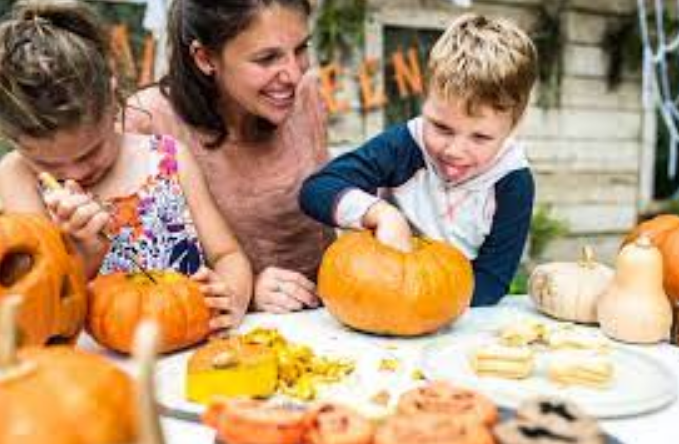
Household customs serve as the interwoven threads of our existence, bridging generations and crafting enduring memories. Be it a yearly festive ritual, a treasured family recipe, or a beloved recurring event, these practices occupy a cherished space in our hearts and significantly contribute to the molding of our identity.
In a rapidly evolving world, it’s essential to grasp why household traditions retain their relevance and how they contribute to our well-being, sense of community, and cultural heritage.
Cultivating Emotional Bonds
Household traditions offer avenues for cultivating emotional ties. When families uphold regular customs, such as weekly game nights, holiday congregations, or Sunday dinners, they craft an environment conducive to open communication, merriment, and support.
These customs act as a foundation for reinforcing relationships, allowing kin to bond, express affection, and gain a profound understanding of one another. Through collective experiences, traditions aid in nurturing empathy, trust, and a sense of security within the family unit.
Creating Enduring Memories
Household traditions play a significant role in creating enduring memories that we treasure throughout our lives.

These recollections become the threads from which our familial history is spun, weaving a tapestry of shared experiences and moments of joy, mirth, and affection:
- One of the reasons household customs effectively create enduring memories is the regularity and consistency with which they occur. Whether it’s an annual camping excursion, a monthly movie night, or a weekly Sunday dinner, these traditions spawn predictable and anticipated moments that we eagerly await. The anticipation itself amplifies the thrill and sense of connection when kin unites to partake in these special events;
- Further, such customs often encompass routines and rituals that over time, become familiar and comforting. Take for instance the annual Thanksgiving feast with its unique menu, adorning the Christmas tree with favored baubles, or the birthday ritual of singing “Happy Birthday” accompanied by candle-blowing. These rituals instill a sense of continuity and stability, fostering a sense of unity and fortifying familial identity;
- Such customs also play a pivotal role in uniting generations, bridging the divide between the young and the elderly. Grandparents impart their wisdom and tales to their grandchildren, passing down their traditions from one generation to the next. These cross-generational bonds foster a profound sense of unity and offer younger kin the opportunity to learn about their lineage and heritage first-hand;
- These traditions typically involve activities necessitating the active participation of all members. Whether it’s engaging in games, cooking collectively, embarking on field trips, or partaking in cultural ceremonies, these shared activities promote a sense of unity and craft enduring memories. The laughter, conversations, and fellowship moments are etched in our memories, forming a mosaic of beautiful recollections that accompany us throughout our lives.
Household traditions also infuse our lives with context and significance. They enable us to commemorate milestones, celebrate pivotal events, and honor our shared values and beliefs. These meaningful customs add depth and richness to our experiences, crafting memories that transcend simple events or excursions.
Over time, we often reminisce about these cherished traditions, reliving moments and narrating tales to future generations. Memories become a source of solace, joy, and a reminder of the love and connection we share with our kin.
Preserving Cultural Legacy
Household traditions play a crucial role in preserving our cultural legacy, ensuring that our customs, beliefs, and values are inherited by successive generations.
Here are some ways such rituals help safeguard our cultural legacy:
Rituals and Ceremonies:
- Adhering to religious rituals and ceremonies inherent to our cultural legacy;
- Observing cultural festivals and holidays as per traditional customs and practices;
- Performing rituals and ceremonies related to our heritage.
Heritage Cuisine:
- The preparation and enjoyment of ancestral foods passed down over generations;
- Imparting culinary knowledge and techniques to children that mirror our cultural heritage;
- Hosting intergenerational cooking sessions, where everyone comes together to learn and share culinary customs.
Language and Conversation:
- Upholding and teaching children their native languages to keep linguistic customs intact;
- Narrating household tales and folklore, imparting oral customs and wisdom;
- Promoting multilingualism and encouraging communication in the native language during such gatherings.
Passing Knowledge Across Generations:
- Motivating elders to recount personal experiences, stories, and cultural anecdotes;
- Preserving household tales and customs through oral interviews or written documentation;
- Involving younger generations in learning and practicing cultural customs, assuring continuity.
Ancestral Games and Sports:
- Imparting traditional games and sports, integral to our cultural heritage, to children;
- Arranging friendly contests or tournaments to keep these customs vibrant;
- Learning about historical and local sports that echo our cultural identity.
By engaging in these practices and cherishing domestic rituals reflecting our cultural heritage, we ensure the vibrancy and survival of our customs and values.
Conclusion
Household traditions hold pivotal significance in our lives, serving as the bedrock of kinship bonds and individual identity. These customs foster emotional ties, shape enduring memories, preserve cultural heritage, and instill values.
By appreciating and perpetuating these traditions, we weave a rich tapestry of shared experiences and values that form the cornerstone of our household. By embracing and passing on these traditions, we bequeath an indelible legacy for future generations to treasure and uphold.



